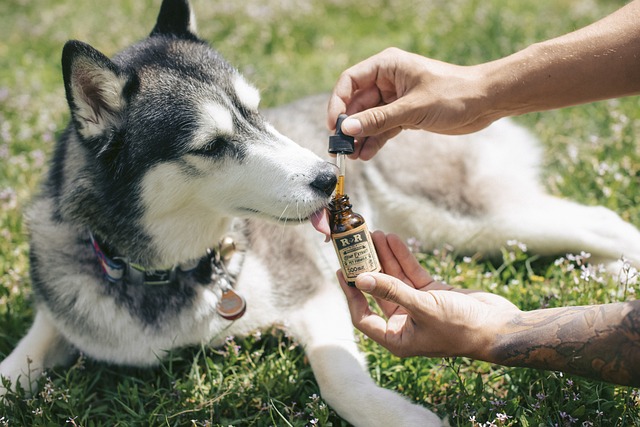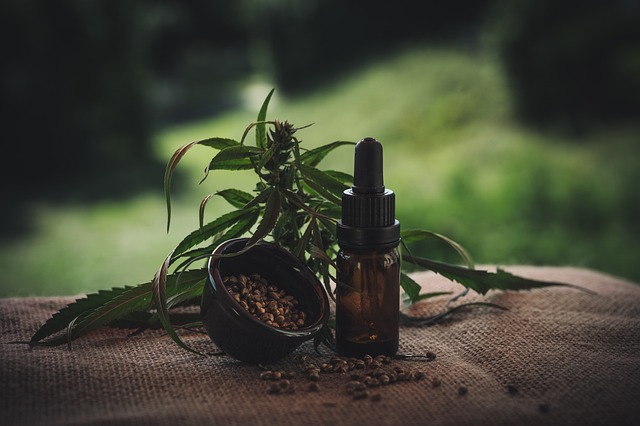Heavy Metals Testing for CBD products ensures consumer safety and product quality. Using advanced methods like ICP-MS, this testing detects trace amounts of harmful contaminants like lead, mercury, and cadmium in various CBD formulations. Mandatory labeling is crucial to inform consumers about potential contaminants, fostering trust. Common heavy metals can enter plants through soil or water, posing health risks. Reputable brands provide third-party lab reports for product purity. Strict regulations and rigorous testing are essential to meet industry standards and legally market CBD goods. Manufacturers should prioritize this testing to ensure safety, brand reputation, and compliance with evolving labeling practices. Consumers increasingly demand transparency about CBD products' safety and purity.
Heavy metals testing for CBD products is a critical aspect of ensuring consumer safety and product quality. This article explores the significance of mandatory labeling in the CBD industry, focusing on heavy metals testing as a key component. We delve into common heavy metals found in CBD oils, current regulations, best practices for manufacturers, and future trends aimed at enhancing transparency and building consumer trust. Understanding these elements is crucial for both producers and consumers navigating this growing market.
Understanding Heavy Metals Testing: Why It Matters for CBD Products

Heavy Metals Testing for CBD products is a critical aspect of ensuring product safety and quality. Heavy metals, such as lead, mercury, and cadmium, are potentially harmful contaminants that can find their way into CBD oils, tinctures, capsules, and other formulations. While the presence of CBD itself offers various health benefits, it’s essential to remove or minimize any trace amounts of heavy metals to prevent adverse effects on consumers.
This testing process involves advanced analytical methods, like inductively coupled plasma mass spectrometry (ICP-MS), which can detect even minuscule concentrations of heavy metals. The results provide valuable insights into the purity and safety of CBD products, giving consumers confidence in their choices. Moreover, adhering to strict heavy metals testing standards sets a benchmark for CBD manufacturers, fostering trust and transparency within the industry.
The Role of Mandatory Labeling in Ensuring Product Safety

Mandatory labeling plays a pivotal role in ensuring product safety, especially when it comes to Heavy Metals Testing for CBD. By mandating clear and precise labeling, consumers can make informed decisions about the products they purchase, knowing exactly what they are putting into their bodies. This is particularly crucial in the case of CBD, where heavy metals testing is essential to guarantee purity and safety.
Labeling requirements ensure that manufacturers provide detailed information about potential contaminants, including heavy metal levels. This allows consumers to avoid exposure to harmful substances and promotes trust in the market. Furthermore, mandatory labeling facilitates effective communication between producers and regulators, ensuring compliance with safety standards and fostering a culture of transparency in the industry.
Common Heavy Metals Found in CBD Oils and Their Potential Risks

Common Heavy Metals Found in CBD Oils and Their Potential Risks
Heavy metals are often present in trace amounts in cannabis products, including CBD oils. While not all heavy metals are harmful in small quantities, testing for their presence is crucial to ensure product safety. Some of the most commonly found heavy metals in CBD include lead, mercury, and arsenic. These contaminants can enter the plants through soil, water, or other environmental factors. Exposure to even low levels of these metals has been linked to various health issues, such as neurological damage, kidney failure, and gastrointestinal problems.
Heavy Metals Testing for CBD is a critical step in mitigating these risks. Consumers should look for products that have undergone rigorous testing to confirm the absence of heavy metals. Reputable brands often provide third-party lab reports as proof of their product’s purity. By prioritizing heavy metals testing, consumers can make informed decisions and choose CBD oils that are safe and effective.
Current Regulations and Standards for Heavy Metal Contamination in CBD

The current regulatory landscape for heavy metal contamination in CBD products is evolving but stringent. Many countries and regions have implemented or are considering mandatory Heavy Metals Testing for CBD to ensure product safety and purity. These regulations aim to protect consumers from potential health risks associated with heavy metal residues, which can be present due to environmental factors or manufacturing processes.
Standardization bodies and government agencies have set guidelines and limits for acceptable levels of heavy metals like lead, mercury, and cadmium in CBD oils, tinctures, capsules, and edible products. Compliance with these standards is crucial for manufacturers to market their CBD goods legally. Regular testing throughout the production process and at critical control points is essential to identify and mitigate any heavy metal contamination risks, ensuring that CBD products meet the required safety standards.
Best Practices for CBD Manufacturers to Meet Labeling Requirements

To meet labeling requirements for CBD products, manufacturers should prioritize Heavy Metals Testing as a best practice. This meticulous process ensures that trace elements like lead, mercury, and arsenic are within safe limits, safeguarding both consumer health and brand reputation. By adopting stringent quality control measures, CBD producers can demonstrate their commitment to purity and safety, fostering trust with discerning customers.
In addition to Heavy Metals Testing, maintaining accurate record-keeping and utilizing reliable third-party laboratories further strengthens compliance efforts. Staying abreast of regulatory updates and industry standards enables manufacturers to adapt labeling practices accordingly, ensuring their products remain market-ready. This proactive approach not only mitigates legal risks but also positions brands as leaders in the evolving CBD industry.
Consumer Awareness: Educating the Market About Heavy Metal Testing

Consumers are increasingly demanding transparency and knowledge about the products they use, especially in the health and wellness sector. When it comes to CBD (Cannabidiol) products, Heavy Metals Testing is a critical aspect that consumers should be educated about. This testing process ensures that the products are safe and free from harmful heavy metals like lead, mercury, and arsenic, which can have detrimental effects on human health.
By promoting Heavy Metals Testing for CBD, manufacturers can build trust with their customers. Educating the market about this testing method empowers consumers to make informed choices, knowing that their CBD products meet strict quality standards. This transparency is vital in a rapidly growing industry where product purity and safety are of utmost importance.
Future Trends in CBD Labeling: Enhancing Transparency and Trust

The future of CBD labeling is poised for significant advancements, with a strong emphasis on transparency and consumer trust. One key area of growth is the integration of comprehensive testing methods, particularly focusing on heavy metals detection. As awareness of potential contaminants in natural products increases, manufacturers will be expected to implement rigorous quality control measures. This includes thorough screening for heavy metals like lead, mercury, and arsenic, ensuring that CBD products are safe and free from these hazardous substances.
By adopting advanced analytical techniques, the industry can set new standards for product purity and safety. These developments will empower consumers to make informed choices, knowing exactly what they are purchasing. Enhanced labeling practices will provide detailed information about sourcing, extraction methods, and third-party testing results, fostering a more transparent and trustworthy market for CBD products.
